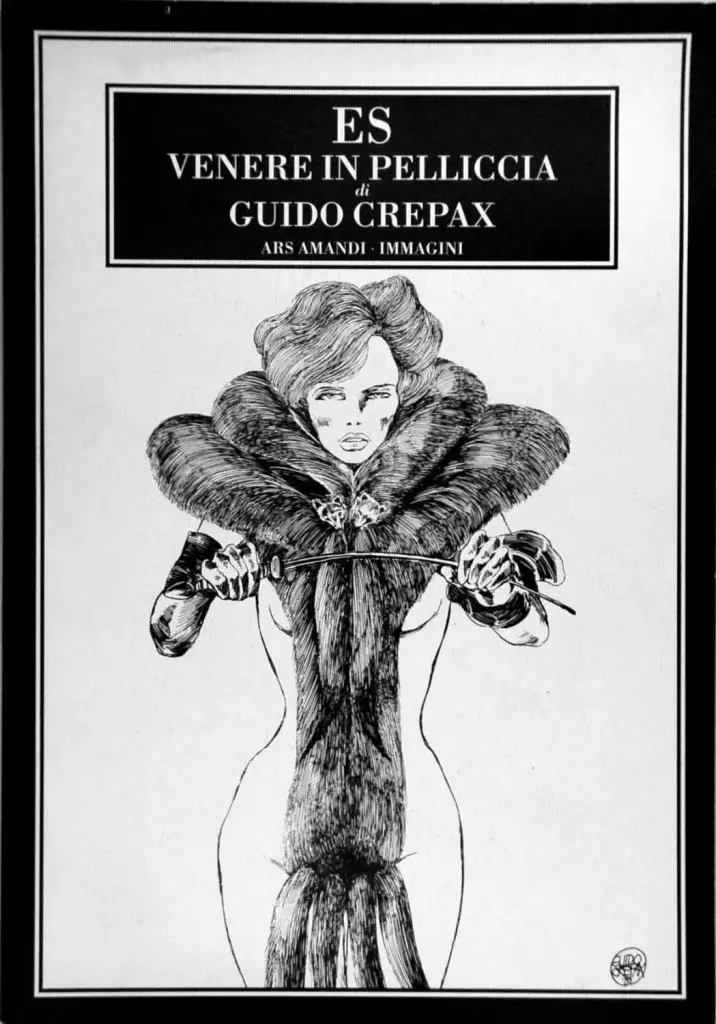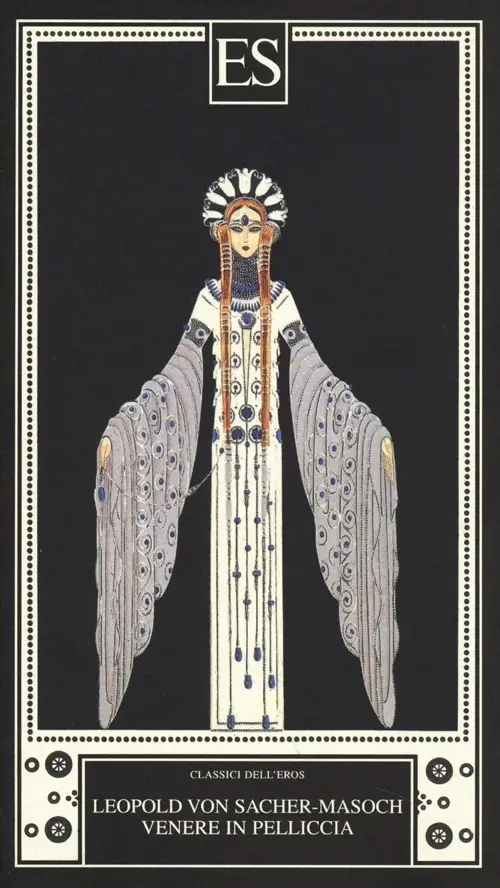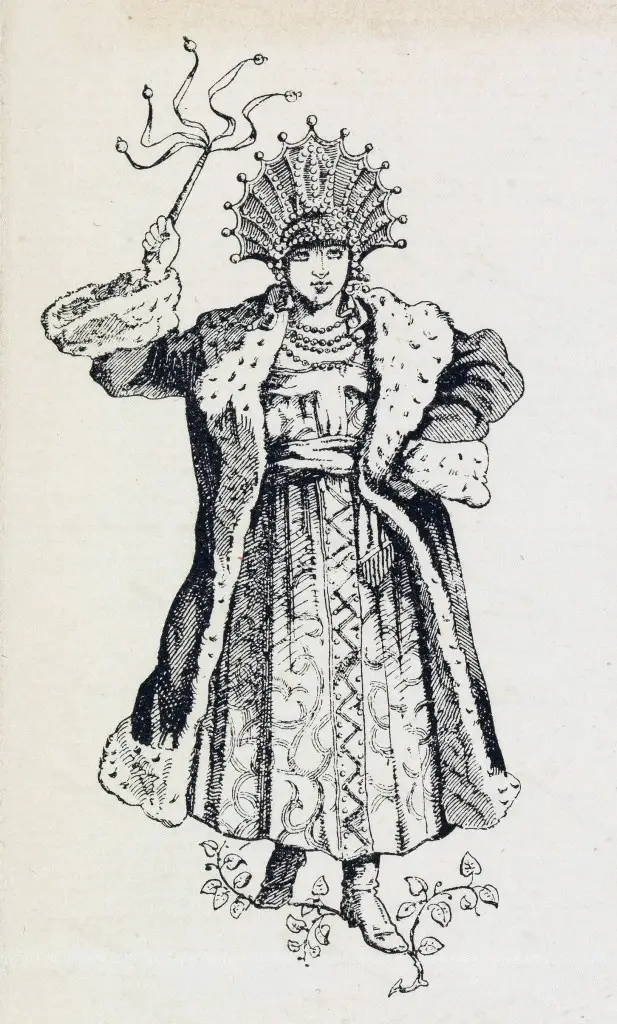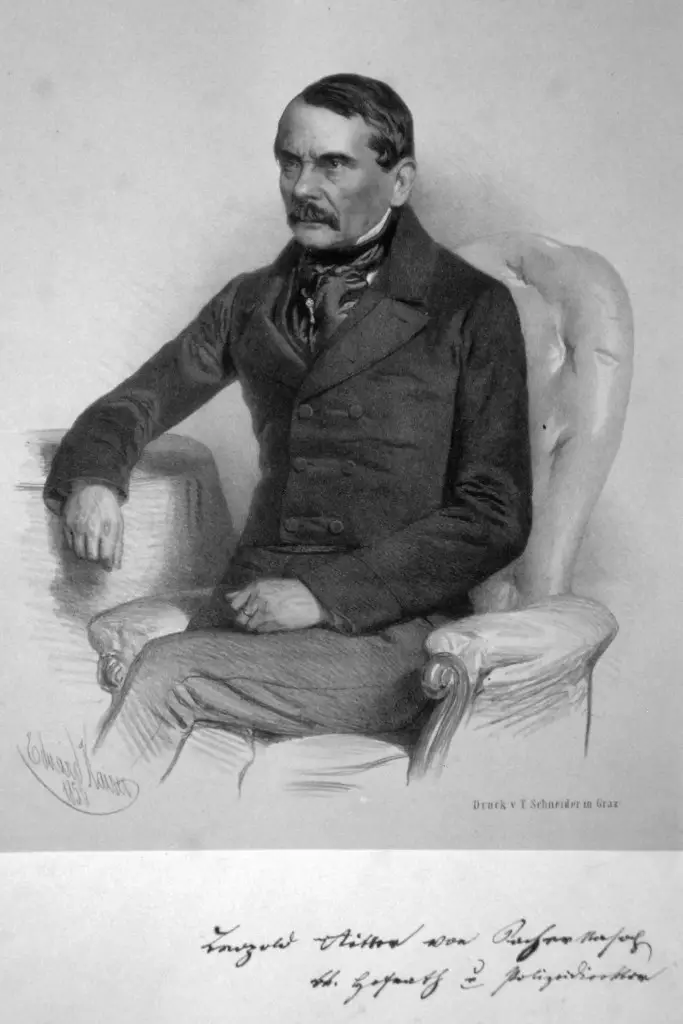On March 9, 1895, the Austrian baron Leopold von Sacher-Masoch died, a notorious exegete of an anti-moral of Sadian and Medusean derivation, founded on the mixture of pleasure and pain and aimed at seeking an elevation devoid of eschatological elements.
di Paul Mathlouthi
Beware, the bodies stretched like restless beasts in the woods,
(Irene Nemirovsky)
when the night of the hunt approaches.
Prejudices, as we know, are extremely tough, especially in environments such as those of the so-called official culture very little used to question dogmas, especially when these guarantee income, professional or personal prestige and, last but not least, tickle vanity, which is the most natural of the opiates. Among those who participate in that dance between sharks commonly known as literary criticism, the opinion that comics is a minor art form is deeply rooted. The virtuosos of the "strips" are addressed by insiders as if they were thieves of ideas, vulgar counterfeiters because, by virtue of the obligatory coexistence of images and text and the inevitable preponderance of drawing over the written word, graphic novel he finds himself assuming, at their unquestionable judgment, a subordinate position with respect to the great literary tradition from which he also draws heavily, ending up by merely reinventing what others have already told. But what else is literature, I ask myself, if not a story of texts which, in relating a story, no matter whether real or fantastic, recall others?
If Molière, defending himself from the arrows of his critics who accuse him of looting the works of his predecessors hands down, with poisonous Parisian nonchalance replies: "Je take le mieux où je le trouve”, Ariosto and Cervantes know they are not innocent, nor do they think readers are, when in their poems they recount the exploits of Crusader or Moorish heroes who have already lived in the pages of others. On the other hand, Gottfried Benn put an end to the age-old question of the "fake author", on which the experts are so heated, it is exegesis ". The narrative, also and perhaps above all that through images, has always lived under the banner of intertextuality and Guido Crepax, in the course of his long and honored career, he took part in this interlocking game with an uncommon elegance, marked by an underground vein of morbidity that made his trait unmistakable. It would not be possible to fully enjoy the cultured refinement and the imponderable, rarefied complexity of his art if one did not take into account the fact that it presupposes a reader who is used to seeing references to events already narrated and echoes of situations that otherwise occurred.

His pencil, both virtuous and indiscreet, has breathed new life into the masterpieces of writers in the smell of sulfur, from Bram Stoker and Mary Shelley to Robert Louis Stevenson and Franz Kafka, without forgetting the divine Marquis de Sade, testifying to an aesthetic sensibility fueled by fascinations of psychoanalytic ancestry, inclined to explore with a voracious spirit and an inquiring eye the darkest drives of the human soul, those that are normally not mentioned in society, because they are considered improper, politically incorrect as one would say today, and are therefore entrusted to the gentle, secret and silent complicity of darkness. A Dante's circle the one evoked by the Milanese cartoonist in his books, an asylum of madness crowded with nightmares, obsessions, unspeakable dreams, a correctional house crammed with guests of rank, among whom a place of honor can only be reserved for Leopold von Sacher Masoch (1836 - 1895), execrated author of one of the most controversial classics of punitive eroticism, Venus in fur, of which Crepax has created the sumptuous graphic reinterpretation that counterpoints these notes [1].
Published in 1878 as the second moment of a larger narrative fresco that was left unfinished, the novel tells the rough details of the relationship of absolute physical and psychological awe that binds (it is appropriate to say ...) Wanda von Dunajew, contemptuous authoritarian Polish noblewoman, cold and anaffective, to the protagonist Severin von Kusiemsky, a decadent intellectual in search of new stimuli that can revive his now insterilized artistic vein who, in pursuing the sublime through highly sought-after experiences commonly denied to mortals, according to the aestheticizing logic of inimitable life, ends up getting lost and finds himself totally subservient to the despotic and criminal amorous whim of his haughty executioner. A story with very strong autobiographical connotations, one descent to the underworld in which it is all too easy to see a fictional transposition, barely disguised behind the literary fiction, of the stormy relationship entertained by Sacher Masoch with his second wife Aurora Rumelin, who contributed not a little, for his part, to feed the black legend that sprouted around the figure of her husband, recording with meticulous (and amused) dedication the elaborate florilege of tortures and privations inflicted on him in the pages of that imaginative gothic torture that are the his Confessions [2].

The most authentic figure of this masterpiece literally written in blood, however, lies far beyond the irresistible, voyeuristic attraction exerted on the reader by the licentious practices it describes. From the Wagnerian myth of Thannauser with which the story opens, passing through the elegiac element of Schillerian matrix on the departure of the Gods and the consequent loss of happiness with the advent of Christianity, from the cruelly realistic and disenchanted reflection on the hidden inclinations of the human soul with the inevitable the negative impact that these have on social dynamics, up to the central theme, naturally Faustian, of the pact with a demonic force, there are many elements that combine to make this "cursed" book, delivered to undying fame by the psychiatrist Krafft Ebing, a small jewel, certainly worthy of some ancillary consideration.
The notorious Galician writer who was the author has recently returned to the headlines thanks to a dowsing intuition of Roberto Calaso. Famous for his consummate skill as an inveterate bibliomaniac thanks to which he is capable of snatching forgotten texts from oblivion, the sulphurous and mephistophelic demiurge of the Adelphi publishing house did not betray the expectations of the elite audience of his demanding readers when, in May a couple of years ago, he published the new edition of a book with a dark reputation, Man becomes a wolf, by the Austrian anthropologist Robert Eisler (1882 - 1949). Starting from the arguments made during a conference held in 1948 at the Royal Society of Medicine in London, the essay, published posthumously, develops the author's reflection on the theme of violence that revolves around idea, clearly derived from Rousseau, according to which the tendency of man to abuse his fellow man is not innate, but the result of a degeneration of a psychiatric matrix due to environmental conditioning. Forced to live in a hostile Nature and contend for their lives with predators, human beings would have developed, in imitation of other species, a propensity for murder which, from peaceful frugiferous primates, would have transformed them over time into bloodthirsty beasts, the only ones capable of attacking the existence of their relatives.

In the context of the Marcusian dialectic (and therefore Freudian in the first instance) between Eros and Civilization, the eruption of violence into historical evolution would therefore represent, according to this reckless conjecture, a Fall with respect to the longed-for Edenic condition, which would find its final destination in the modern age, the poisonous forbidden fruit where thealgophilia, that is the pleasure experienced in the exercise of pain, inflicted and suffered, is reified and erected as the architrave of social relationships [3]. What Eisler seems to miss is that in Sacher Masoch there is no trace of that macerating sense of guilt of Old Testament roots that underlies his apodictic argument: for the Galician writer, largely indebted in this to the great libertine literary tradition of the century that preceded it, violence does not have a moral connotation, it does not represent the stigma that testifies to the expulsion from Paradise, but it simply exists, it is a midwife of History, that is, it is experienced as a fact, a vital impulse placed beyond the boundaries of a symbolic and meaningful horizon which, through contrition and forgiveness, hopes, as Eisler seems to suggest, an impossible return to presumed antelucan harmonies.
The cynical hedonism that underlies the Venus in fur excludes every eschatological perspective, does not imply any salvific loophole and openly scoffs at universal rights, the altruism of candid souls, respect and moral reprimands which are the connective tissue of civilized life. Sitting on the throne of her chilling imperturbability, the dark lady the protagonist of these pages claims to itself the exercise of a sovereignty which - force of the paradox - is affirmed through a supreme negation, that of the dignity of others. In establishing her undisputed dominion over the mind and flesh of him who consecrates himself body and soul, Wanda unfolds a freedom that opens wide the doors of an abyss in which every possibility is contemplated and before which the humanitarian whims with which one play today the guardians of democratic disorder become irrelevant details.

Sacher Masoch sets out the ambitious intent to found an anti-moral, but the significance of his message is so diachronic with respect to the values shared by the society in which it was born and developed that, in the passage from theory to practice, the potentially subversive charge of his thought inevitably changes into its opposite, assuming the traits of a regressive and reactionary utopia. Masochism thus becomes a practice reserved for a few initiates, a entertainment exclusive and dangerous necessarily circumscribed, given the exceptional character of the liturgies that make up the ceremonial, to a very small circle of adepts, bound by silence to protect themselves from the judgment of the zealots and devoted to a cloistered existence in which everyone, does not care whether victim or executioner, he plays, as in a drama, a predetermined functional role, on a dialectical level, in the existence of the counterpart. She writes Wanda to Severin when she agrees to lend herself to the "game" he proposes to her:
He will have no other will than mine. He will be a blind instrument in my hands, and he will carry out my every order without replying. If […] you do not obey me in all respects, I will have the right to punish and chastise you in my absolute discretion without you being able to dare to complain about it. Every joy, every happiness that I want to grant her will be my act of grace and as such she will have to welcome it […]; I do not recognize faults or duties towards her. She will be neither son nor brother nor friend to me, but only my slave prostrate in the dust. She will be mistress of both his body and her soul, and no matter how much she may suffer, she will have to submit her sensations and feelings about her to my authority. The greatest acts of cruelty will be granted to me, and even if I have to bear it without a complaint [...], when I swim in abundance and leave her in hardship and trample her, she will have to kiss in silence the foot that has trampled her. […]. She will have nothing but me, I will be everything for her, life, future, happiness, misfortune, torment and pleasure. Whatever I ask you […], you will have to execute it, and even if I demand a crime from you, you will have to turn into a criminal, to obey my will. […] I will be her mistress for life and death. When she will no longer be able to bear my domination, and she finds the chains too heavy, then she will have to kill herself, I will never give her freedom again. [4]

Beautiful ladies without mercy whose Medusea beauty shines among these pages in all its dismal splendor, Wanda stands majestically like an Egyptian deity, in the sculptural rigidity of the features of her face, in the iron coldness of her gaze, mysterious and seductive sparkles an implacable will, which bends everything and fears nothing. Like the witches of the Middle Ages, accused of committing infanticide, it frees seduction from any procreative purpose, impoverishes it of any affective connotation and uses it as a blunt weapon through which it infantilizes the partner, an enthusiastic accomplice of his tortuous machinations, to the point of enslaving him. : imprisons him in an inextricable network of physical and psychological conditioning with morbidly incestuous references, reducing him to a child totally dependent on his person. Without being tied up, she chains him; she humiliates him, she secures him and drags him with her into the darkness.
Severin, on the other hand, is a victim who longs for his executioner: she flatters her, fondles her, enchants her, exasperates her, needs to flatter her, to subjugate her, to persuade her to sign in order to sign a "pact" with her for the realization of the strangest and most wicked of amorous unions. In his own way, he is an educator, almost a pedagogue. The range of action of the homicidal heroine who comes to life from the obsessions of Sacher Masoch, formally without limits, is therefore, ultimately, necessary, as the arbitrariness on which she is based has its roots in the voluntary submission of the prisoner. designated, who actively participates in the correct functioning of this artificial microcosm, spontaneously offering himself to martyrdom, according to a contractualism that cannot be rescinded. Who is the prey between the two, actually? Who the predator? Difficult to find a way out of the intricate labyrinth of this Hobbesian fairy tale built on the constant reversal of roles.

And do not believe, as has also been said by many, that the murky story described by Sacher Masoch represents an aberration proper to Modernity: Athena, warlike goddess of wisdom with a spear who protects Achilles and sided with the Greeks in the Trojan war, his human counterpart penthesilea, daring queen of the Amazons who rushes to Priam's defense after Hector's death, as well as Medea, who does not hesitate to sacrifice her children to take revenge on Jason or Judith, who seduces Holofernes and then decapitates him, are just some of the signs that the Myth has handed down to us, with its language interwoven with metaphors, testifying how deeply rooted is, in the symbolic imagery of Western culture, the archetype of an androgynous femininity, free from its biological function which, reversing the normal dialectic between the sexes, with furious determination claims for itself the exercise of a role, that of power, traditionally attributed to the male counterpart, with the consequent freedom of judgment and action inherent to it and, precisely for this reason, considered dangerous, destabilizing if not even subversive.
Wanda is only the latest champion, in chronological order, of Elena's lineage, to whom, as Dorothy Parker wrote, just a hint was enough for history to startle. An exclusive parterre de rois which among its ranks includes legendary figures such as Cleopatra, Elisabetta Bathory, Sydonia von Bork and Lucrezia Borgia, just to limit ourselves to those who have known literary fortune and would certainly have had - I am sure - all the credentials to offer faces, gazes, bodies, winged forms and criminal actions in sacrifice on the altar of Guido's portentous erotic imagination Crepax.

Note:
[1] Guido Crepax, Venus in fur, Editorial Studio, Milan, 2015
[2] Wanda von Sacher Masoch, My confessions, Adelphi, Milan, 1977
[3] Robert Eisler, Man becomes a wolf, Adelphi, Milan, 2019
[4] Leopold von Sacher Masoch, Venus in fur, Editorial Studio, Milan, 2004; page 148
